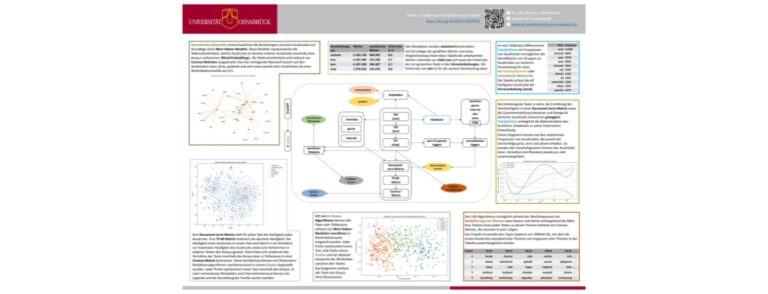
Das Projekt untersucht den öffentlich-schriftlichen Diskurs der Literaturvermittlung an höheren Schulen im 19. Jahrhundert für alle deutschen Staaten – außer
Short description of the project
The notebooks of Nobel Prize in Literature laureate Peter Handke form a significant, yet unpublished body of work. In a long-term cooperative project between the Austrian National Library and the German Literature Archive Marbach, all 75 notebooks created up to 1990 will be published for the first time in a commented digital edition and made freely accessible. All research data will be archived for the long term and made available for reuse and research.
Project content
The notebooks are Handke's most important working tool, used to prepare his works or to record his readings and travels. Starting in 1976, he began capturing a "reportage" of all kinds of "consciousness events" in his daily notes, experimenting with new aesthetic techniques that led to a shift in his poetics. This consistent note-taking, which also includes drawings, makes the notebooks unique documents and indispensable sources for Handke research. Seventy-five notebooks from the period between 1971 and 1990, comprising a total of 10,900 densely written pages, are already accessible in public archives.
Edition project
The digital edition project "Peter Handke: Notebooks" is led by PD Dr. Bernhard Fetz and Dr. Ulrich von Bülow. It is being developed by a seven-member team from the Literature Archive and the Department of Research and Data Services of the Austrian National Library, as well as the German Literature Archive Marbach, under the editorial direction of Mag. Katharina Pektor.
The digital edition includes the publication of all 75 notebooks on the edition website https://edition.onb.ac.at/handke-notizbuecher (open access). It is hosted and archived within the Sustainable Infrastructure for Digital Editions at the Austrian National Library. The edition project is designed as a three-part long-term endeavor:
The notebooks will be made available according to current editorial standards as philologically verified texts that are easy to read and cite and can be cross-checked with the facsimile. They will include brief commentary and indexing and will be presented in a synoptic view of facsimile, annotated diplomatic transcription, edited reading version, and TEI-XML view. Comprehensive overview comments will provide quick insights into the content and material, allowing thematic access to the individual notebooks. The mediation and indexing offerings will be continuously expanded during the project phases and supplemented with new content and itineraries, such as a search function or the visualization of travel routes.
Methods
The workflow combines classical and digital editing methods: editing concepts, features, and tools are developed and validated by the entire team in an agile manner. The texts are transcribed in Transkribus , with machine support such as Handwritten Text Recognition, und Named Entity Recognition eingesetzt werden sollen. Anschließend werden die Dokumente im OxygenEditor and enriched with authority data (GND, VIAF, Wikidata). The TEI documents are versioned and stored via GitLab and integrated into the edition platform.
Innovation
The first publication of the notebooks is a prerequisite for the thorough analysis and interpretation of Handke's work. It enables new questions and insights regarding his poetics, the intertextuality of his writing, and his specific working methods and the genesis of his works. In terms of coding and visualization, new approaches are being sought based on standards and innovative digital humanities research methods, for example, in dealing with drawings, work-genetically relevant data, or location data.
Head of the ProjectPD Dr. Bernhard Fetz (Head of the Literary Archive and the Literature Museum, Austrian National Library) and Dr. Ulrich von Bülow (Head of Department Archive, German Literary Archives Marbach
Head of the Edition: Mag. Katharina Pektor
Editors: Dr. Anna Estermann MA, Mag. Johanna Eigner BA
Assistance: Anja Stix MA MA, Linda Dürrwächter MA, Dominik Denk BA
Edition infrastructure: DI Christoph Steindl BSc (Leitung der Abteilung Forschung und Datenservices, Österreichische Nationalbibliothek), Mag. Martina Bürgermeister MA (Abteilung Forschung und Datenservices, Österreichische Nationalbibliothek)
External employees translate foreign-language text passages and transcribe stenographic text passages: Univ. Ass. Dr. Ioannis Fykias (Ancient Greek), Prof. Dr. Anna Montané Forasté (Spanish), Ana Grigalashvili / Mag. Manuel Zauner (Georgian), Dr. Helmut Moysich (Italian, French), Mag. Martin Springinklee (Stenographic), Dr. Mag. Dominik Srienc (Slovenian), Univ. Prof. Dr. Dorothea Weber (Latin).
Former team members: Dr. Vanessa Hannesschläger (Edition), Mag. Martin Krickl, Mag. Manuela Mayer MA, Mag. Christiane Fritze (Technical Realization, Data modeling)
International scientific advisory board: Peter Stadler MA (Universität Paderborn), Dr. Rüdiger Nutt-Kofoth (Universität Wuppertal), Dr. Tanja Kunz (Universität Bielefeld), Dr. Marit Heuß (Universität Leibzig)
Peter Handke: Notebooks. Digitale Edition
Österreichische Nationalbibliothek
Deutsches Literaturarchiv Marbach
Katharina Pektor
Head of the Edition
E-Mail: handke-notizbuecher@onb.ac.at
Find out more at
edition.onb.ac.at/handke-notizbuecher
Add your DH research project to the project showcase by submitting a short project description via the web form. Enter project data, a brief description, a graphic or visualization as well as a detailed description of the project content with technical assignment, addressees, added value, project managers, funding information and duration.

Das Projekt untersucht den öffentlich-schriftlichen Diskurs der Literaturvermittlung an höheren Schulen im 19. Jahrhundert für alle deutschen Staaten – außer
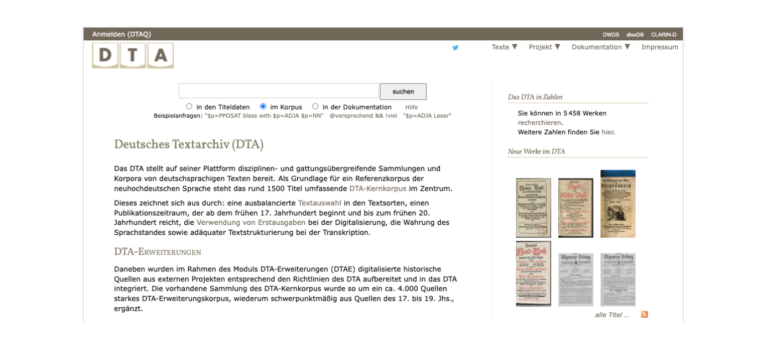
Das DTA ist ein Archiv für deutschsprachige, historische Textsammlungen an der Berlin-Brandenburgischen Akademie der Wissenschaften. Es umfasst annotierte Volltexttranskriptionen von
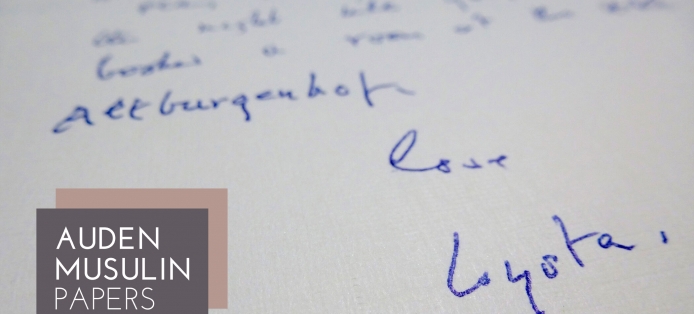
Von 1958 bis 1973 lebte und arbeitete der anglo-amerikanische Dichter Wystan Hugh Auden (1907-1973) viele Monate im Jahr im niederösterreichischen
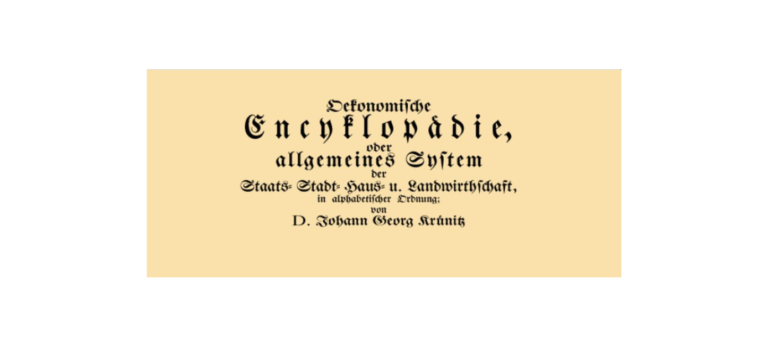
Digital edition of the economic-technological encyclopaedia by J. G. Krünitz, published in 242 volumes from 1773 to 1858.
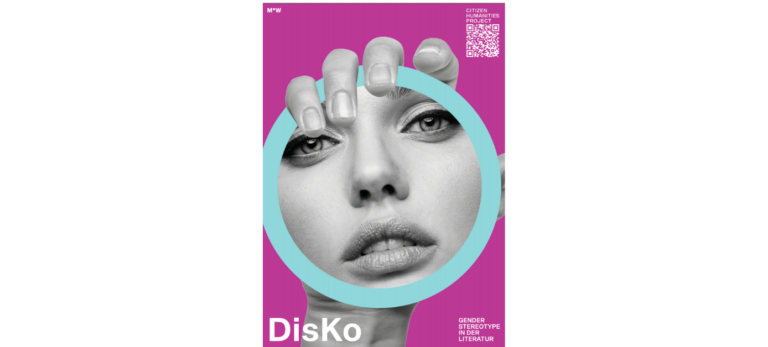
DisKo steht für Diversitäts-Korpus und ist ein literaturwissenschaftliches Projekt mit Digital-Humanities-Komponente. Mit Methoden des maschinellen Lernens wollen wir einen Algorithmus
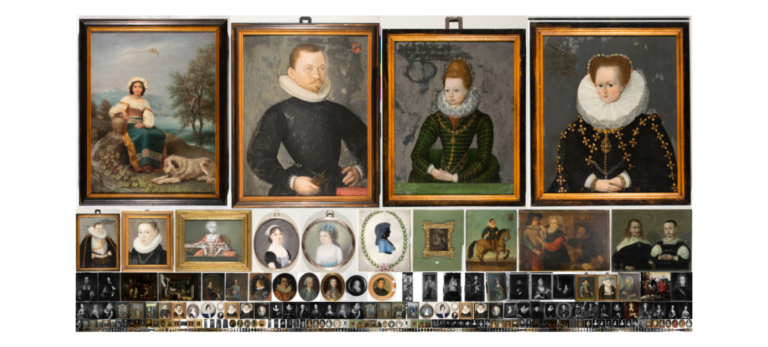
Das vom Bundesministerium für Bildung und Forschung (BMBF) geförderte und am UCLAB der FH Potsdam angesiedelte Projekt Restaging Fashion (11.2020
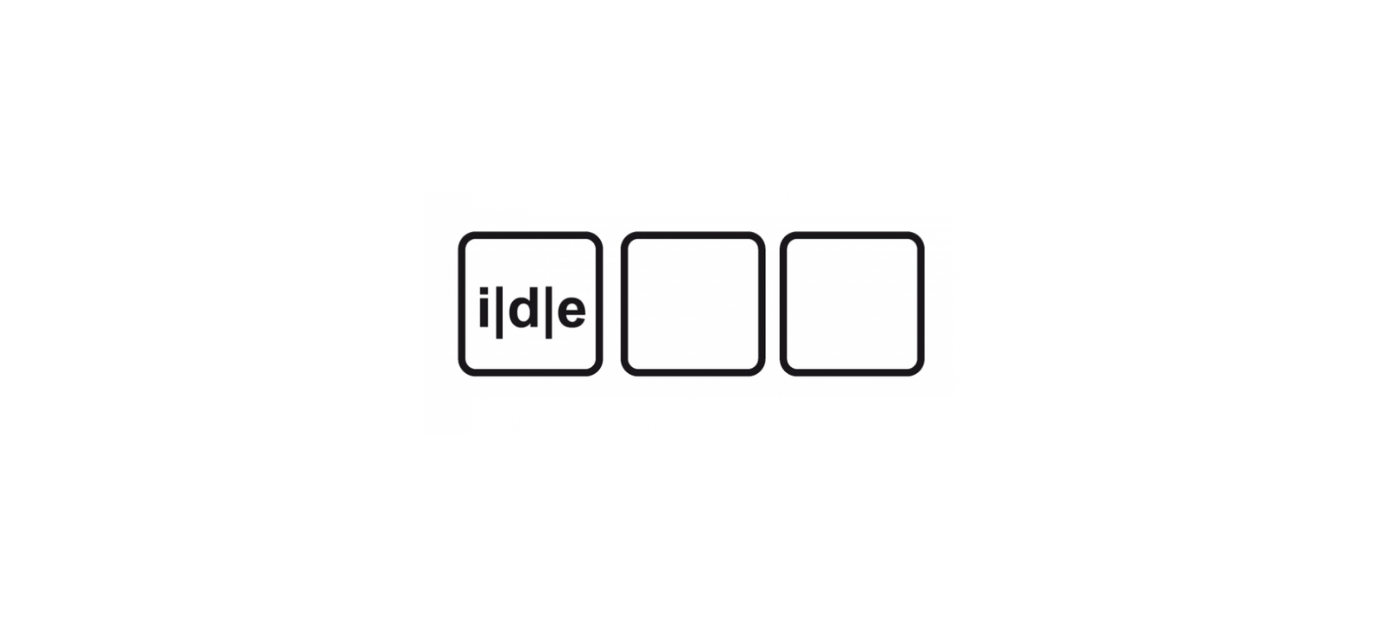
Das Institut für Dokumentologie und Editorik e.V. (IDE) ist ein internationaler Zusammenschluss von Wissenschaftlerinnen und Wissenschaftlern aus verschiedenen Disziplinen der Geisteswissenschaften, die sich den Digital Humanities zugehörig fühlen.
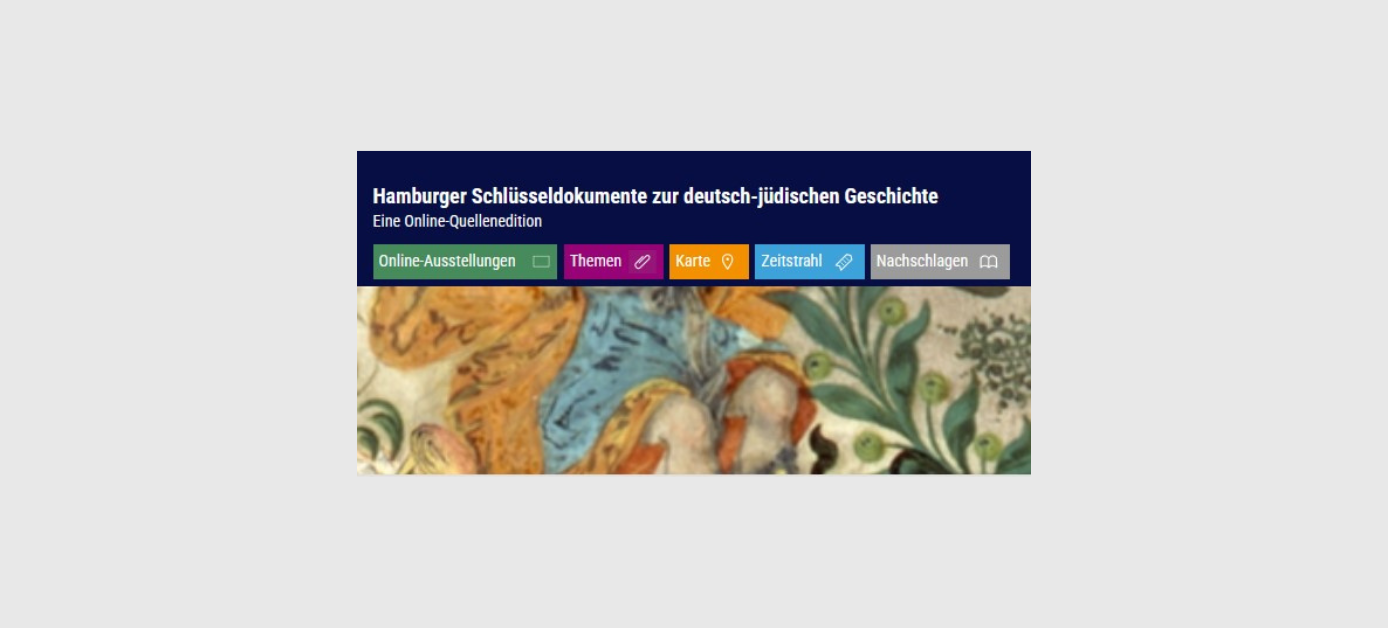
Die Edition „Hamburger Schlüsseldokumente zur deutsch-jüdischen Geschichte“ soll sowohl einem akademischen Publikum als auch der interessierten Öffentlichkeit einen niedrigschwelligen Zugang
Wir verwenden Cookies und ähnliche Funktionen zur Verarbeitung von Daten. Die Zustimmung ist freiwillig und kann jederzeit widerrufen werden.